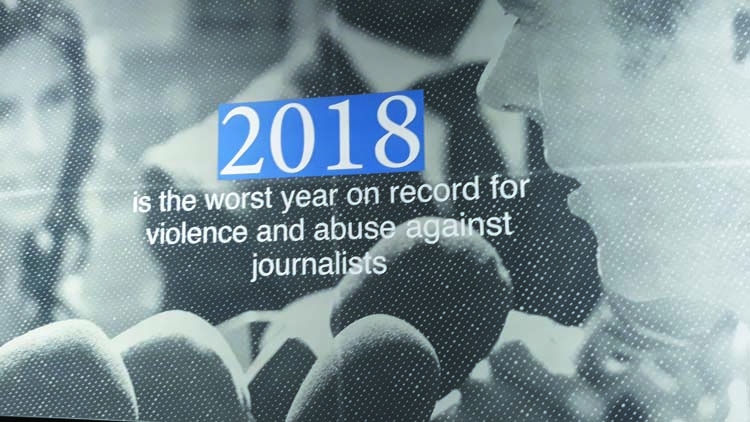Published: 03:08 AM, 12 July 2019
'Irresponsible journalism imperils freedom of expression'

The two-day Global Conference for Media Freedom, sponsored by the British and Canadian governments, concluded on an upbeat note in London on Thursday. The day's deliberations noted a lively series of sessions dealing with various subjects focused on issues of media freedom across the globe.
Among those who took part in the deliberations were British Foreign Secretary and a candidate for leadership of the ruling Conservative Party Jeremy Hunt and reputed international lawyer Amal Clooney.
Among the sessions which drew large audiences was one dealing with the subject of media conditions in South-East Asia. Participants at the session included ministers from Malaysia and Indonesia and Maria Ressa, editor of the Philippine media outlet Rappler. Ressa, it may be noted, has lately earned the ire of President Rodrigo Duterte and spent time in prison on spurious charges of anti-state activity.
Another significant session of the day centered around the subject of religion and the media at which participants dwelt on issues of discrimination based on religious themes, to the point of incitement to hatred based on faith.
One of the more substantive of the concluding day's deliberations concerned the issue of a strengthening of media freedom across the Commonwealth.
Moderated by Julie Bishop, former foreign minister of Australia, the session saw a heavyweight presence of Richard Sezibera, foreign minister of Rwanda; Kojo Opping Nkrumah, information minister of Ghana; Kamina Johnson-Smith, foreign minister of Jamaica; Desmond Browne QC and Zoe Titus of the Namibia Media Trust.
In their opening remarks as well as in their responses to questions from the audience, the panelists stressed the need for integrity in journalism even as the media sought to uphold its freedom to speak truth to power. Quality journalism was of the essence, the speakers asserted in their comments, considering that there were growing challenges to the media in the Commonwealth.
Desmond Browne QC referred to recently drafted Commonwealth principles regarding the functioning of free media among the 53-member body. He made it clear that while journalism must of necessity exercise freedom and strengthen democracy, it ought to be borne in mind that irresponsible journalism only imperiled freedom of expression. Journalism, he noted, could not but be underpinned by three points.
It must be responsible, objective and impartial. In his reflections on the state of the media in Rwanda, Richard Sezibera dismissed the charge that journalists had been put in prison in his country because of the government's policy of repression.
He maintained that media persons in prison in Kigali and elsewhere in the country had been arrested because of their role in the commission of genocide. His reference was the murder of tens of thousands of Tutsis by Hutus in 1994, a pogrom which ended with the rise to power of President Paul Kagame.
Journalists must be clear in their expression of opinion, he said. 'No journalist should be neutral when genocide is committed and no journalist should, in the name of neutrality, go for genocide denial', said the Rwandan minister.
Namibia's Zoe Titus painted a glowing picture of freedom of the media in her country, asking whether there was any requirement of information ministries in an age of a growing trend toward media freedom.
Ghanaian minister Nkrumah reflected on three premises regarding media freedom that could be considered. In his view, regulations relating to enabling the media to do its job could be three-tiered --- self-regulation, co-regulation and state regulation.
---from London




